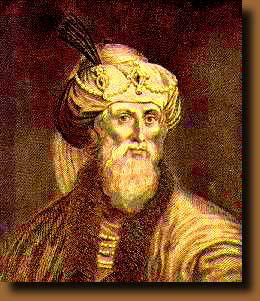Post Author: Bill Pratt
 In part 1, we introduced the writings of the Jewish historian Josephus and demonstrated that he mentioned Jesus and his brother James in one section of his work, The Antiquities.
In part 1, we introduced the writings of the Jewish historian Josephus and demonstrated that he mentioned Jesus and his brother James in one section of his work, The Antiquities.
But there is an even more famous passage that talks about Jesus in The Antiquities. This longer section is referred to as the Testimonium Flavianum. Historian Edwin Yamauchi explains that this passage is more controversial among historians because there may be later Christian additions to the original text. Historians refer to these possible additions as interpolations. Below I will include the entire text and highlight in bold the most disputed phrases.
About this time there lived Jesus, a wise man, if indeed one ought to call him a man. For he was one who wrought surprising feats and was a teacher of such people as accept the truth gladly. He won over many Jews and many of the Greeks. He was the Christ. When Pilate, upon hearing him accused by men of the highest standing among us, had condemned him to be crucified, those who had in the first place come to love him, did not give up their affection for him. On the third day he appeared to them restored to life, for the prophets of God had prophesied these and countless other marvelous things about him. And the tribe of Christians, so called after him, has still to this day not disappeared.
Yamauchi claims that “today there is a remarkable consensus among both Jewish and Christian scholars that the passage as a whole is authentic.” But what about the possible interpolations (the bold text above)? Why do some scholars think Josephus would not have said these things?
The first bold phrase appears to indicate Jesus is more than human, which seems unlikely coming from Josephus. The second bold phrase flatly says that Jesus is the Messiah, instead of saying Jesus was called the Messiah. Again, this seems unlikely. Finally, the third alleged interpolation proclaims the resurrection of Jesus, not something that Josephus would likely report. We can’t be sure about any of these phrases, and maybe Josephus did write them, but the current scholarly opinion is mixed on the subject.
What is left of the passage, though, is still a powerful corroboration of key facts about Jesus. Yamauchi summarizes: “He was the martyred leader of the church in Jerusalem and . . . he was a wise teacher who had established a wide and lasting following, despite the fact that he had been crucified under Pilate at the instigation of some of the Jewish leaders.” Those facts line up exactly with what the New Testament records about Jesus.
Given these two passages from Josephus, how significant are they? Yamauchi explains: “Highly significant, especially since his accounts of the Jewish War have proved to be very accurate; for example, they’ve been corroborated through archaeological excavations at Masada as well as by historians like Tacitus. He’s considered to be a pretty reliable historian, and his mentioning of Jesus is considered extremely important.”
So, we do have at least one non-Christian source that talks about Jesus from the first century in Josephus. But there are additional sources that should be mentioned before we leave this topic. Find out in the next post….